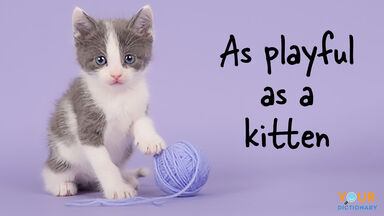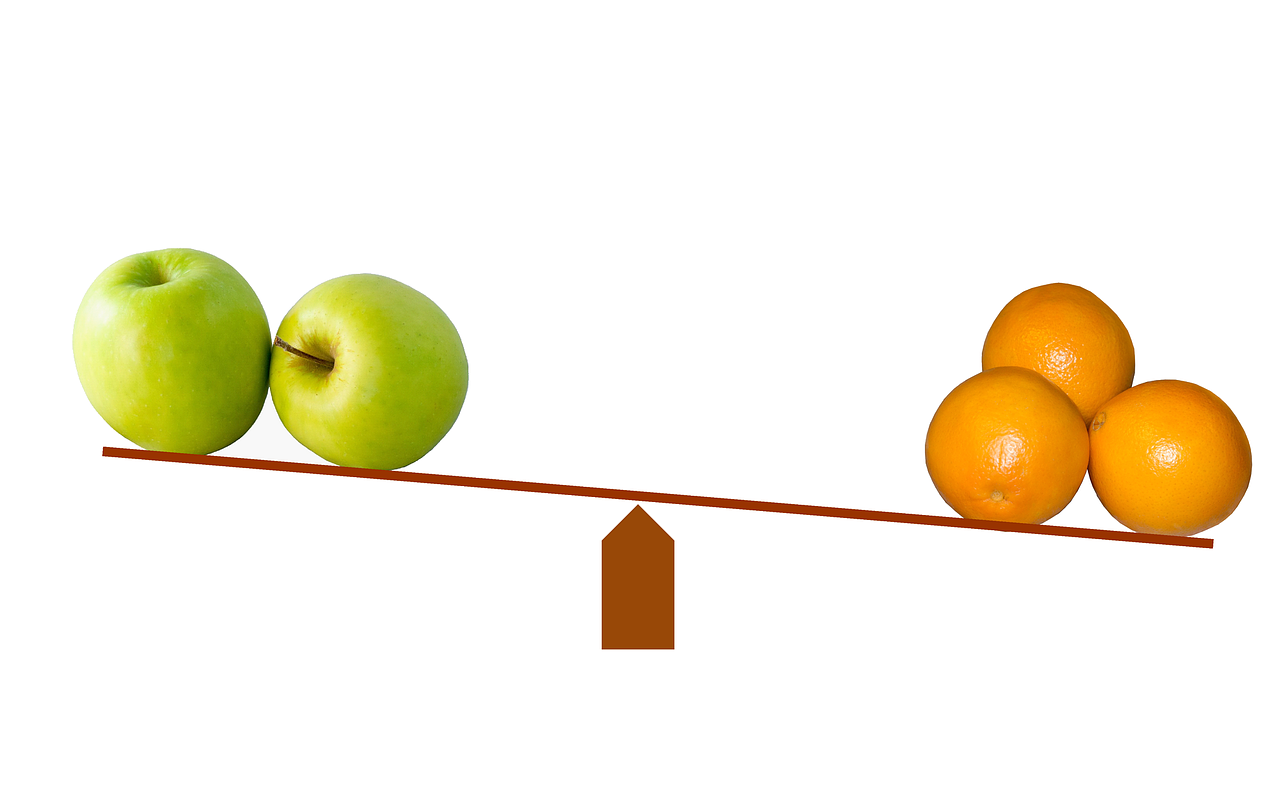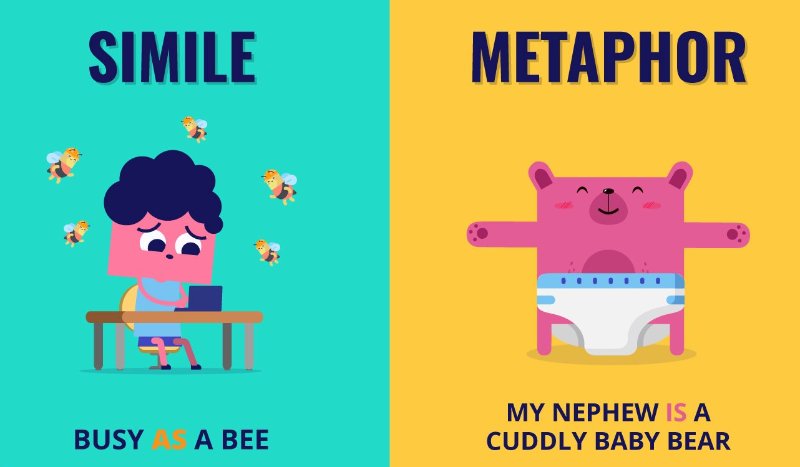Today we will talk about similes and Metaphors in English. “Life is like a box of chocolates; you never know what you’re going to get.” Everyone knows this one, from the Oscar winning movie, Forrest Gump, written by Eric Roth and spoken by the eponymous title character himself, referring to the surprises, twists and turns that life throws at us. It compares “life” to a “box of chocolates” by using the word “like”. This is known as a simile (pronounced sim-i-lee). In this example, the simile is a positive one – I don’t know about you, but to me any chocolate is a “good chocolate” – and therefore, every surprise you get in life should be seen as a good surprise. This helps the reader get to know the character better by sharing his positive outlook on life despite all the hardship he has encountered and endured. The writer could have said “Life is like a game of Russian Roulette; you never know what you’re going to get” – but in this scenario, there are simply bad outcomes or outcomes that don’t affect your life in any way. This is not what Eric had in mind, and this is definitely not how Forrest Gump thinks!
Using the words “as” to compare two things
Likewise, one can also use the word “as” in a simile to compare two things such as “he was blind as a bat” or “to be stubborn as a mule”. This immediately paints a fairly accurate picture because a simile generally uses a comparison that we all know or can relate to. We all know that bats are blind and that mules are stubborn, so we don’t need to try to understand what the writer is attempting to explain – we immediately understand.
“The dappled morning sunlight gently kissed the moss-covered floor of the otherwise dark and eerie forest.”

This is known as a metaphor and is used to paint an image in the mind of the reader by describing a person, action or object in a way that isn’t literally possible, but helps compare the one thing with the other by stating that one thing is another (ie. the sunlight kissing the floor). “Baby you’re a firework” – from the song: Firework, Katy Perry, is a popular example of a metaphor. I tell my husband that he is my rock every day. This is what is so beautiful about the English language. It is so descriptive, and enables the reader to be instantly transported to distant lands by simply closing their eyes. Creatures and magical places come to life by using phrases such as “the tiny, winged fairy was light as a feather as it settled on the end of my finger, its iridescent wings sparkling in the sunlight like miniature, stained-glass windows, vibrating gently in the breeze”. Scenes are set in order to stir the emotions of the reader, preparing them for what is to come next: “Every night, as the moon waned again, it shone brighter…burning like a watchful eye that glared above the trees” (Lord of the Rings, The Fellowship of the Ring, J.R.R. Tolkien)
When trying your hand at similes, they need to be simple and clear. This will help the listener or reader instantly understand the comparison you are trying to make and will therefore have a greater impact. Visual or audio similes that paint a picture or sound are the best such as “The water made a sound like kittens lapping.” — The Yearling, by Marjorie Kinnan Rawlings. Can you picture it? Even better, can you hear it? Can you imagine a couple of tiny kittens, hunched over a saucer of milk, their little, pink tongues lapping up the warm liquid. Now imagine the water that Marjorie is referring to, perhaps from a stream or brook, making the same sound. (As a side note from an avid animal lover – please do not give milk to kittens or cats unless specifically provided by a vet or pet store as most cats are lactose intolerant. Don’t believe the cartoons!)
Use of comparison words to make people want to read

A really good writer is able to stir up the reader’s emotions simply by using the power of the English language. I have laughed like a hyena at Thermal the cat and his pet raisin, Ralph, in The Cat Who Came in from the Cold – Deric Longden. I have stayed up late into the night because I couldn’t stop reading, desperate to know whether the killer would strike again and whether the waitress would finally be dead as a door nail. I have even cried like a baby when we said goodbye to the beautiful Golden Retriever dog, Marley, in Marley & Me – John Grogan. There is nothing I love more than delving deep into a good book, full of adventure, wondrous creatures and mystical lands. I can travel the world instantly, from oceans as blue as sapphires, to snow covered mountains and jungles as densely packed as my grandmother’s closet.
I smile like a Cheshire Cat when I am riding a fire-breathing dragon (this is a reference to the grinning Cheshire Cat from Alice’s Adventures in Wonderland, Lewis Carroll). Books are doorways to your imagination. Movies are too to some extent, but in films, the picture is already painted, it leaves nothing to the imagination. Similes and metaphors may help with the characters themselves or their thoughts, but books take you deeper. The wind howled through the trees like a wailing woman – how would you portray this in a movie? But in a book, you can almost hear the mournful cry, feel the atmosphere, and perhaps even experience a slight tingle down your spine.
In conclusion, similes and metaphors are a great way to draw your reader in. Play with their imagination, toy with their emotions, transport your reader immediately to the place and time of the event – whether 100 years ago or 100 miles from here. Get your reader to instantly understand the picture you are trying to paint but let them paint it. That way, they are creating the story as it unfolds and are therefore a part of it. Once a reader connects with the story, the possibilities are endless.
Article written by Break Into English’s online teacher and blog contributor Kerrie Fordyce.









